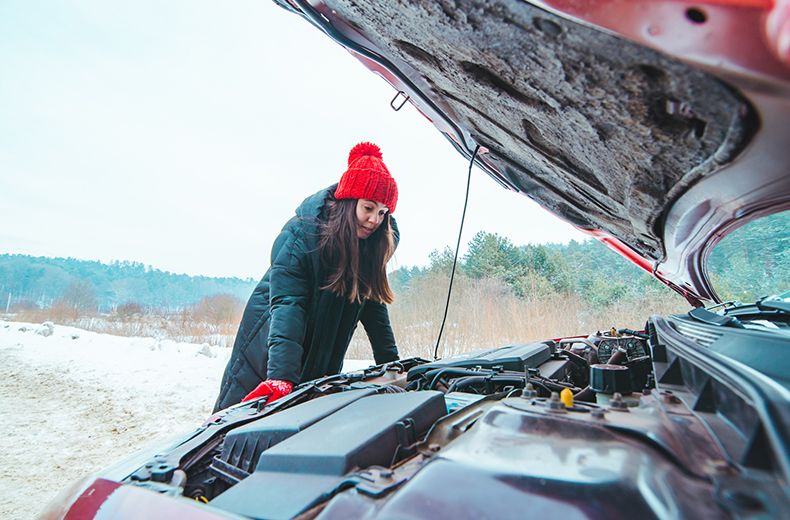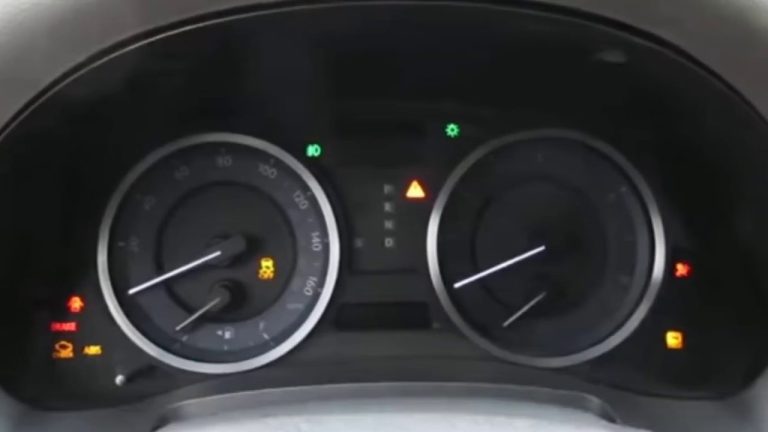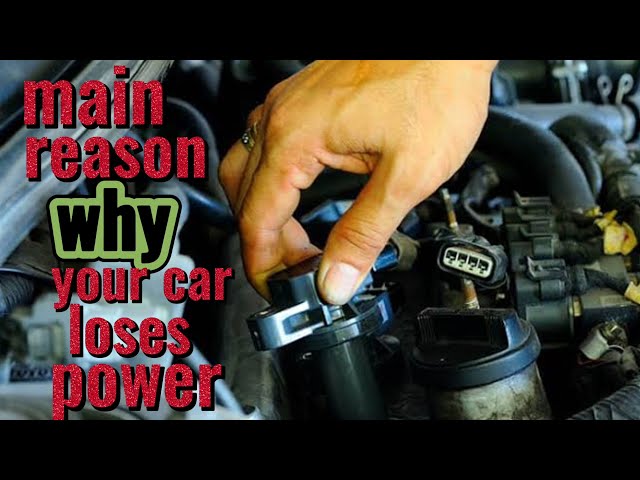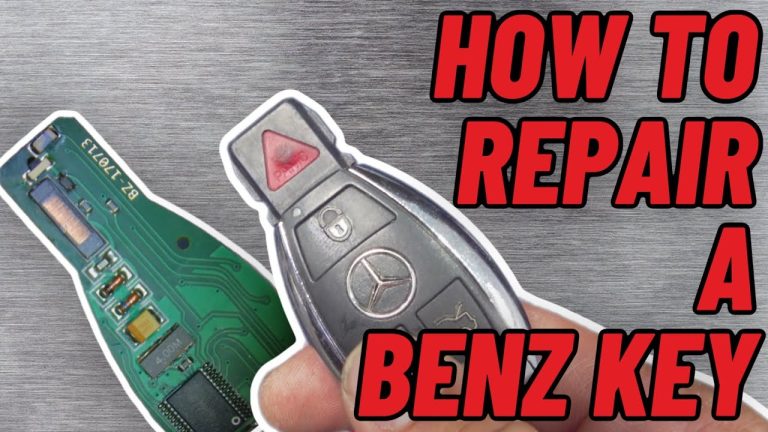Car Won’t Start in Cold: Essential Fixes & Tips
If your car won’t start in cold weather, the battery may be weak, or the engine oil could be too thick. Fuel lines can also freeze, or spark plugs may struggle to ignite. Check the battery, oil, and fuel system, and consider using a block heater if available.
Frustration builds as you wonder why your car won’t start in the cold. You’re not alone. This is a common issue many drivers face, especially during winter. But don’t worry; understanding the reasons behind this problem can save you time and stress.
You’ll discover why the cold affects your car and how you can prevent those chilly morning surprises. Stick with us, and you’ll learn tips and tricks to ensure your car is as ready for the cold as you are. Let’s dive into the world of cold-start car challenges and find solutions that work for you!

Credit: www.youtube.com
Read more: Car Won’t Start After Getting Gas: Troubleshooting Tips
Car Won’t Start in Cold
Common Cold Weather Issues
| Possible Cause | Description | Possible Solution |
|---|---|---|
| Weak Battery | Cold weakens battery power, making it hard to start. | Test battery, jump-start, or replace it. |
| Thick Engine Oil | Low temperatures thicken oil, increasing engine resistance. | Use winter-grade oil or synthetic oil. |
| Frozen Fuel Lines | Moisture in fuel lines can freeze, blocking fuel flow. | Add fuel-line antifreeze or warm the car. |
| Faulty Spark Plugs | Old or dirty plugs may fail to ignite in the cold. | Inspect, clean, or replace spark plugs. |
| Starter Motor Issues | Cold affects starter motor performance. | Check starter motor and connections. |
| Weak Alternator | Can’t charge the battery properly in cold conditions. | Test alternator and replace if needed. |
| Fuel Pump Problems | Fuel pump may struggle to work in extreme cold. | Test fuel pump and fuel pressure. |
Thickening Oil
Engine oil tends to thicken in cold temperatures, making it harder for the engine to turn over. This increased viscosity can strain the starter and battery. Switching to a low-viscosity oil designed for winter can ease this problem. Have you considered an oil change before the winter season sets in?
Fuel System Issues
Cold weather can cause moisture in the fuel lines to freeze. This can block fuel from reaching the engine, leaving you stranded. Using a fuel line antifreeze or a fuel additive can help prevent freezing. Do you keep any fuel additives on hand for those particularly frosty mornings?
Ignition System Challenges
The ignition system can also suffer in cold weather. Spark plugs might not function properly if they are worn out or dirty, leading to a no-start condition. Regular maintenance of your ignition system can prevent this. When was the last time you checked your spark plugs?
Tire Concerns
While not directly related to starting your car, tire pressure can drop in cold weather. Low tire pressure can affect your vehicle’s handling and safety. Regularly checking your tire pressure is a simple yet effective habit. Have you noticed your tire pressure warning light more frequently in winter?
Understanding these common cold weather issues can make a significant difference in keeping your car reliable during the winter months. By anticipating these problems and taking proactive steps, you can ensure that your car starts smoothly, even on the chilliest of mornings. What steps will you take to winter-proof your vehicle?
Battery Problems
Winter mornings can be tough, especially when your car won’t start. Many drivers face this issue due to battery problems. Cold weather affects battery performance. It reduces the battery’s power. Understanding battery problems can help you get back on the road.
Battery Drains Faster In Cold
Cold temperatures slow down chemical reactions inside the battery. This results in a lower power output. A weak battery drains faster. It’s crucial to check your battery regularly in winter.
Corrosion On Battery Terminals
Corrosion can form on battery terminals. This blocks the flow of electricity. It causes starting issues. Cleaning the terminals might resolve the problem. Use a brush and some baking soda.
Old Batteries Struggle More
Old batteries lose efficiency over time. Cold weather makes it worse. If your battery is more than three years old, it might be time to replace it. Newer batteries perform better in winter.
Check Battery Connections
Loose connections can stop the battery from working properly. Ensure the cables are tight. A simple check might save you from being stranded. Tighten any loose connections for better performance.
Fuel System Challenges
Cold weather often challenges vehicle performance. The fuel system is no exception. When temperatures drop, various issues can arise. These can prevent your car from starting. Understanding these challenges is crucial for car owners.
Fuel Line Freezing
In freezing temperatures, fuel lines may freeze. This stops fuel from reaching the engine. Ice can form in the fuel lines. This happens when water mixes with the fuel. Regular maintenance can help prevent this issue.
Thickening Fuel
Cold temperatures can thicken fuel. Especially if the fuel is diesel. Thick fuel moves slowly through the system. This affects the engine’s ability to start. Consider winter-grade fuels to combat this.
Fuel Pump Malfunctions
Cold weather affects the fuel pump. It can make the pump work harder. A struggling pump can’t deliver enough fuel. This results in starting problems. Ensure your pump is in good condition.
Evaporative Emission System Issues
The evaporative emission system controls fuel vapors. In cold, parts can freeze or malfunction. This leads to pressure problems. These problems can prevent starting. Regular checks can help maintain this system.
Ignition System Troubles
When winter’s chill sets in, many drivers find themselves in a frustrating predicament: their car won’t start. Often, the culprit is the ignition system. This vital component of your vehicle is particularly susceptible to cold weather woes. Understanding the common issues that can arise in the ignition system can save you time and money, especially during those frosty mornings when you’re in a hurry.
What Is The Ignition System?
The ignition system is the heart of your car’s starting process. It includes various parts like the ignition coil, spark plugs, and distributor. Each plays a crucial role in creating the spark needed to ignite the fuel and start the engine. In cold weather, these parts can malfunction, leading to a car that refuses to start.
Common Cold Weather Problems
Cold temperatures can cause the ignition coil to fail. This coil transforms the battery’s voltage into a higher voltage to create the spark. If it’s too cold, the coil may not work efficiently, leaving your car silent.
Spark plugs can also be affected. They may become dirty or worn out, which hinders their ability to produce a spark. Without a healthy spark, your engine won’t start.
Signs Your Ignition System Is Struggling
How do you know if the ignition system is the problem? Listen for a clicking sound when you turn the key. This indicates an issue with the ignition coil.
Notice if the engine cranks but doesn’t start. This could mean the spark plugs are not firing correctly. These symptoms are common in cold weather and point directly to ignition troubles.
Quick Fixes And Tips
- Check your spark plugs regularly. Clean or replace them if necessary.
- Consider using a battery warmer. It keeps your battery and ignition coil at optimal temperature.
- Keep your car in a garage overnight to shield it from the cold.
Why Does Cold Affect Ignition?
Cold weather thickens the oil in your engine, making it harder for parts to move. This increased friction can strain the ignition system.
Think about how you feel sluggish on a cold morning. Your car’s ignition system feels the same way. The cold makes it harder to generate the spark needed to start the engine.
Personal Experience: A Lesson Learned
One winter morning, I found myself stranded with a car that wouldn’t start. After checking the ignition system, I discovered dirty spark plugs. A quick clean got me back on the road. That experience taught me the importance of regular maintenance, especially in cold weather.
Have you ever been caught off guard by a car that won’t start? What steps did you take? Share your experiences to help others avoid similar issues.
Preventative Measures
Cold weather can affect your car’s battery and fuel system. Regular maintenance prevents starting issues. Keep battery connections clean and ensure fuel lines are clear to maintain performance in chilly conditions.
Preventative measures can save you from the frustration of a car that won’t start in the cold. Taking the right steps can make those chilly mornings much smoother. Let’s dive into some practical actions you can take to keep your car ready to go, no matter how low the temperature drops.
Battery Maintenance
Regularly check your battery’s health. Cold weather can sap its power faster than you might think. Clean the terminals and ensure they are free of corrosion.
Consider using a battery warmer. It’s a simple device that keeps your battery at a temperature where it functions optimally. You’ll thank yourself when your car starts without a hitch on frosty mornings.
Oil Viscosity
Use oil that’s suitable for cold weather. Thinner oil flows more easily in low temperatures, making it easier for your engine to start. Check your owner’s manual for the recommended oil type for winter.
Change your oil regularly. Dirty oil can thicken and make starting your car a real challenge. Keep it fresh to avoid unnecessary stress.
Fuel System Care
Keep your gas tank at least half full. This prevents moisture from forming in the tank and freezing. It’s a small step that can prevent big problems.
Add a fuel stabilizer if your car sits idle for long periods. This will keep your fuel system clean and free of ice buildup.
Heater And Defroster Checks
Test your heater and defroster before the cold hits. They’re crucial for visibility and comfort. Make sure they’re working efficiently.
Clean your windshield thoroughly. A clear view can prevent accidents, and a good defroster will make short work of any ice.
Regular Maintenance
Schedule regular check-ups with your mechanic. They can spot potential issues before they become big problems. A well-maintained car is less likely to leave you stranded.
Check your belts and hoses for wear and tear. Cold weather can make them brittle, leading to breaks. Replacing them before they fail is a smart move.
Think about the last time your car wouldn’t start because of the cold. What could you have done differently? Taking these preventative measures now can save you from that headache tomorrow. Keep your car in top shape, and it’ll be ready to roll whenever you are.

Credit: www.lokithorshop.com
Read more: Ford Fusion Won’t Start: Troubleshooting Tips Unveiled
Frequently Asked Questions
How Do I Fix My Car Not Starting In The Cold?
To fix a car not starting in the cold, check the battery and clean the terminals. Use a block heater or jump-start. Ensure fuel lines aren’t frozen and use winter-grade oil. Consider replacing the spark plugs for better ignition.
How Do You Start Your Car When It’s Too Cold?
Ensure your battery is charged and use a block heater overnight. Turn off all accessories before starting. Press the clutch if you have a manual transmission. Use a fuel additive to prevent fuel line freeze. If it struggles, wait a few minutes before trying again.
Is It Normal For A Car Not To Start In Cold Weather?
Yes, it’s normal for cars to struggle starting in cold weather. Cold temperatures can affect battery performance and engine oil. Regular maintenance and using the right oil can help. Keep your battery charged and consider using a block heater for better starts in winter.
How To Warm Up A Cold Engine That Won’t Start?
Ensure the battery is fully charged. Use a block heater to warm the engine. Check and replace any faulty spark plugs. Use starting fluid sparingly in the air intake. Ensure fuel lines aren’t frozen.
Why Won’t My Car Start In Cold Weather?
Cold weather affects the battery and fuel system. Batteries lose power. Fuel thickens. Engines struggle.
Conclusion
Facing a car that won’t start in cold weather is frustrating. Simple checks can save time and stress. Test the battery first; cold drains its power. Ensure fuel lines are clear, as frost can block them. Keep your car’s engine warm overnight.
Use a cover or park in a garage. Regular maintenance prevents issues before winter hits. Replace old batteries and fluids before cold sets in. Following these tips helps your car start smoothly. Stay prepared for chilly mornings. Keep your vehicle in top shape, and enjoy a hassle-free winter drive!







